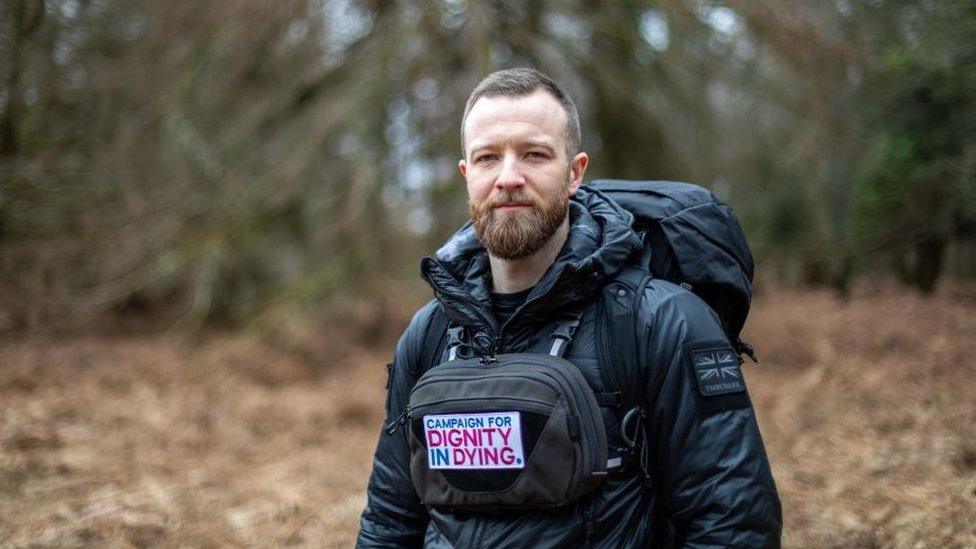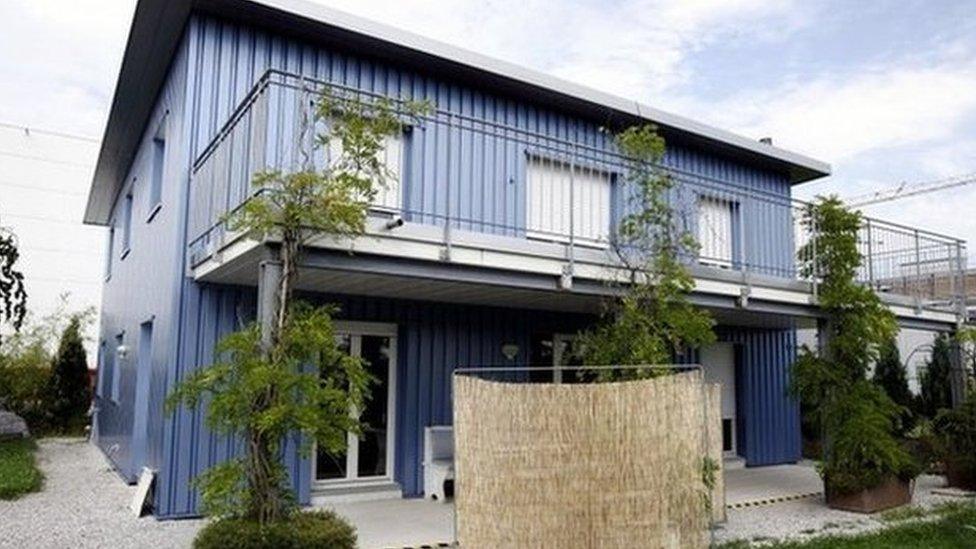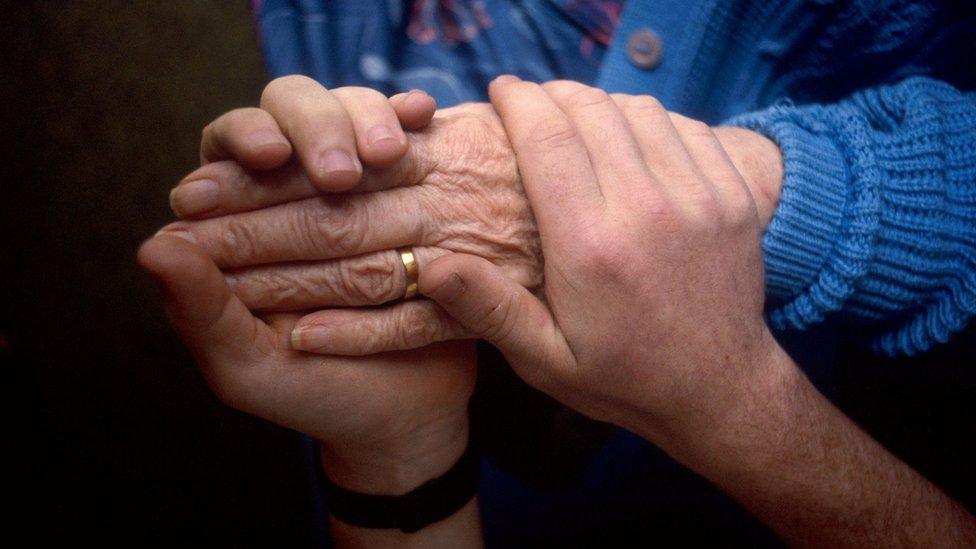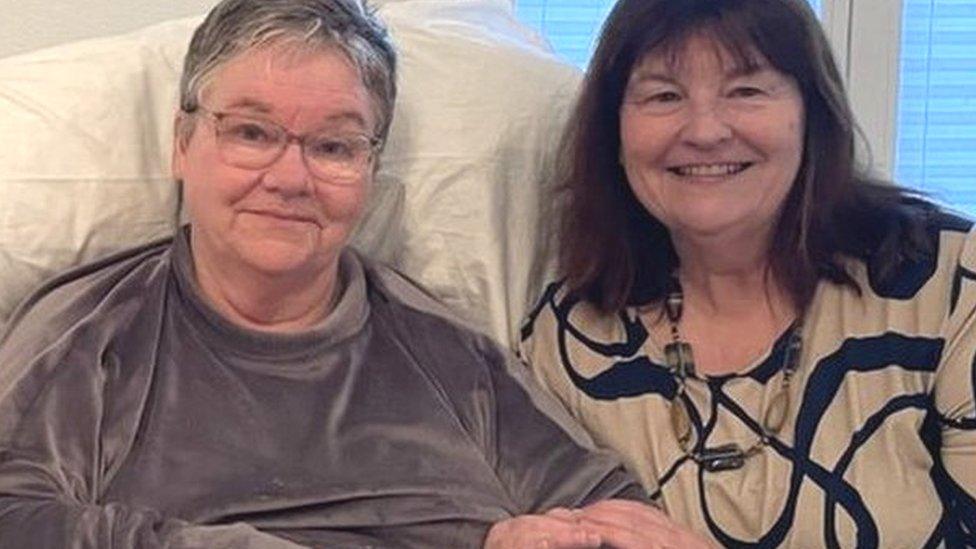Assisted dying: Grieving son calls for law change
- Published

James Johnson will urge the Liberal Democrat conference to push for a change to the law in the UK
A former police officer whose terminally ill mother was assisted to die in Switzerland is calling for a change to the law in the UK.
James Johnson, from Hampshire, said his mother had to spend her life savings to have "control over her death".
He is due to tell the Liberal Democrat conference in Bournemouth his mother died alone without her family to protect them from prosecution.
Assisted dying is legal in Switzerland for residents and foreign nationals.
Under the law in England and Wales, anyone assisting someone to die or accompanying them abroad to do so can be sentenced to up to 14 years in prison.
Mr Johnson said his mother, a nurse who continued working until her final months, was terminally ill with vasculitis, a condition that attacks the vital organs, which left her in agony.
He said she received excellent palliative care, but still suffered unbearably.

Mr Johnson's mother died at the Dignitas clinic in Pfaeffikon, near Zurich
Not wanting him to risk his career in the police, Mr Johnson said she made all the arrangements for Dignitas, a Swiss assisted dying organisation, herself, spending more than £15,000 in the process.
He said: "My mum was a strong woman, but her illness left her with agonising symptoms that palliative care could not help.
"She was not wealthy, but she had to spend her life savings just to have control over her death. This option should not be behind a paywall, but under the UK's current law, it is.
"The memory of saying goodbye to my mum will always haunt me.
"Standing there with tears in my eyes, fighting desperately against the urge to run after her down the road, to hug her again, to join her on her final journey - but I couldn't."
Mr Johnson said if assisted dying had been legal in the UK, his mother "could have died in her own bed with me holding her hand, not in secret or alone, spending thousands in the process".
'Reduce suffering'
He added: "I urge Parliament to tackle this issue and bring about real change for dying people like my mum. They do not have the time to wait."
Since her death, Mr Johnson has raised more than £12,000 for Dignity in Dying, a UK campaign to change the law.
Francesca Hall, from the organisation, said: "Lawmakers in the UK must stop outsourcing compassion to another country because of their own reluctance to address the problems with our assisted dying ban."
Last year, MPs launched an inquiry to hear evidence in the debate around assisted dying, external and consider if the law should be changed.
They said common objections focused on the impact it could have on vulnerable groups and the healthcare professionals who would need to be involved.
"Many respondents proposed an increase in funding and provision for palliative and end of life care to reduce suffering," they wrote.
Assisted dying has been decriminalised in several European countries, including Spain, Belgium and the Netherlands.
The British Medical Association has adopted a neutral position, external on the issue.
Alistair Thompson, from Care Not Killing, a UK alliance of organisations opposed to the legalisation of assisted suicide, said apart from the "considerable ethical issues", changing the law would "perpetuate a dog whistle message that those with a terminal or chronic condition will die in terrible pain, that current palliative care cannot help them and simply taking a pill will end their lives peacefully".
He said it would send a "chilling message" to the most vulnerable in society, before adding: "At a time when we have seen how fragile our health care system is, how underfunding puts pressure on services and when up to one in four Brits who would benefit from palliative care, I would suggest this should be the focus of parliamentary attention, rather than discussing again this dangerous and ideological policy."
If you have been affected by any of the issues in this story, the BBC Action Line has links to organisations which can offer support and advice

Follow BBC South on Facebook, external, Twitter, external, or Instagram, external. Send your story ideas to south.newsonline@bbc.co.uk, external.
- Published27 June 2023

- Published12 May 2023

- Published15 November 2022
